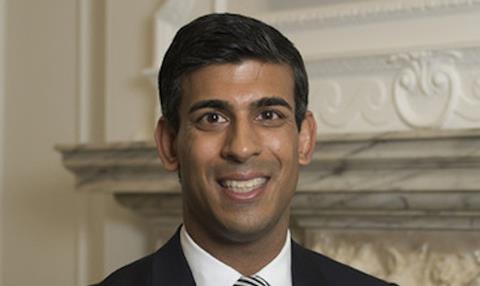Meat industry trade bodies have highlighted the importance of engagement from officials with the sector ahead of the general election in July.

On Wednesday 24th May Prime Minister Rishi Sunak announced the anticipated general election, which will be held on Thursday 4th July.
The meat industry welcomed the news, with the National Sheep Association (NSA) saying that the announcement had "ended the speculation seen for months that would surely have only built the longer this decision was delayed".
NSA chief executive Phil Stocker commented: “You do get to a point where speculation and growing uncertainty gets in the way of progress, so I welcome the fact that we now know the date of the general election and we can get on with this, get it out of the way, and move forward again from the summer.
"Sheep farmers, like others, need some stability and a clear future direction, accepting that we are working in a world where change is inevitable and, in many cases, desirable. The UK agricultural sector is already on a trajectory towards more sustainable farming, where food production has become recognised as more important, without taking away the need for better natural resource protection, helping to tackle climate change, and providing for nature within a farmed landscape.
"There is nothing I hear from the Labour Party to suggest that if there were to be a political change, that we would see a change of direction and that has to be good suggesting no major deviation whatever the election result. NSA has worked hard to grow relationships with both the major political parties so they understand the opportunities and the barriers faced by sheep farmers and I feel we have done that with some success."
Nick Allen, CEO of the British Meat Processors Association (BMPA), said: "If we want food security for a growing UK population, we need a smoothly functioning domestic food supply chain. Government policy can help or hinder that and will form part of the next government’s legacy.
"Currently the meat industry is struggling with new workforce legislation that is stifling our ability to fill skilled vacancies, and border controls that have added significant cost, making us less competitive on the world stage and hiking prices for UK shoppers.
"The British meat industry asks that policy makers consult with the on-the-ground industry experts who can help identify impacts and opportunities. We’d also like to see the different Government departments and civil servants work more closely together to ensure there are no detrimental, unintended consequences for the food supply chain of future policy decisions."
Two-way trade is "essential" for the meat sector
The International Meat Trade Association (IMTA) called it a "shock calling of a UK general election", and stated that it would be keen to see the manifestos of major political parties when they are published. It highlighted that industry would be interested to see what "might be in store on trade policy", and said that two-way trade was "essential" for the meat sector.
Strategy director of the International Meat Trade Association (IMTA), Katrina Walsh, said: "We will be following the election with interest, particularly on what each of the major political parties has to say on key member issues such as trade policy, the border and sustainability.
"We hope that trade associations and members will still be able to receive answers on operational questions during the pre-election period of sensitivity, as ongoing engagement with officials is crucial on certain trade topics."
Food industry confidence at "rock bottom"
The calling of the election comes just three months after the National Farmers' Union (NFU) Conference in February, where the Prime Minister said he would he would be supporting the British farming industry.
NFU president Tom Bradshaw said: "This general election may well be the most important in a generation for British food and farming. The stakes are very high. If the next Government gets it right then this huge sector can grow, contributing even more to the UK economy, to the health and welfare of Britons and to the environment. But farming and growing is under huge pressure.
“Confidence is the currency that forms the foundation of feeding the country and it is currently at rock bottom; after months of devastating flooding, high production costs and low market returns, and against a backdrop of reformed farm support as we transition to a new domestic agriculture policy. Farmers and growers need the policies in place that will rebuild confidence and deliver a thriving, profitable farming sector delivering for food security as a key part of our national security.
“The NFU will be engaging with candidates from all political parties over the coming weeks to promote our election manifesto and ensure every prospective MP understands the importance of boosting home-grown food production as well as the work farmers and growers carry out 365 days a year caring for the environment, providing a home for nature and providing solutions to the challenges of climate change.
"What farmers, growers and the public need to see is practical policies which invest in a future where Britain’s farmers and growers can continue producing sustainable, affordable food, driving forward economic growth, providing jobs, and delivering on the nation’s environmental ambitions.”















